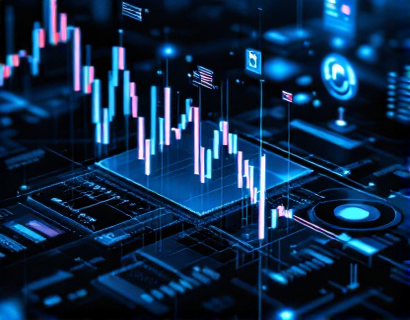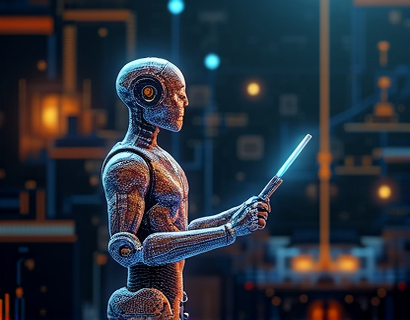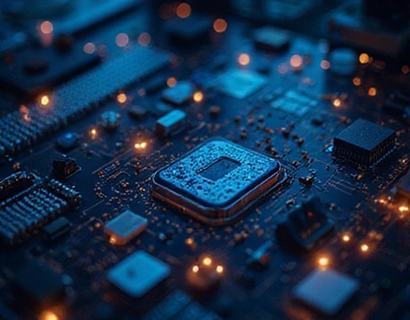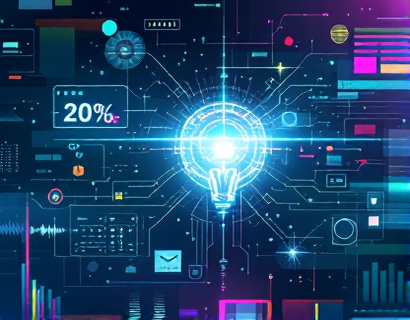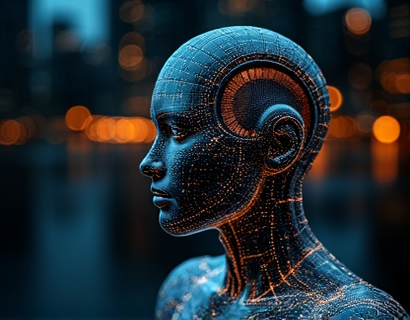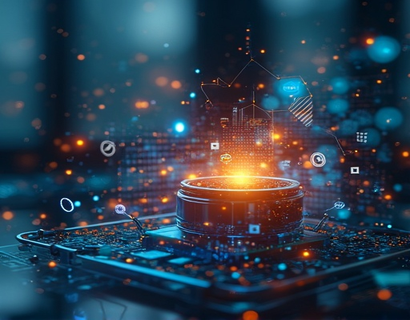Revolutionizing Digital Finance: The Synergy of AI and Crypto
The intersection of artificial intelligence (AI) and cryptocurrency is ushering in a new era of digital finance, characterized by enhanced security, improved user experiences, and unprecedented efficiency. This transformative synergy is not just a buzzword but a reality that is reshaping the tech and finance landscapes. As we delve into this topic, it's essential to understand the foundational technologies and their individual impacts before exploring how they complement each other to create smart solutions.
Foundations of AI and Cryptocurrency
Artificial intelligence, a branch of computer science, focuses on creating systems that can perform tasks requiring human intelligence, such as learning, reasoning, and self-correction. AI technologies include machine learning, natural language processing, and computer vision, each playing a crucial role in various applications. On the other hand, cryptocurrency, exemplified by Bitcoin, is a digital or virtual currency that uses cryptography for security and operates on a decentralized network, typically a blockchain.
Cryptocurrency's decentralized nature eliminates the need for intermediaries, reducing transaction costs and increasing transparency. However, the lack of central control also introduces challenges such as scalability, security, and regulatory compliance. AI addresses these challenges by providing advanced tools for data analysis, fraud detection, and system optimization.
Enhancing Security with AI
One of the most significant benefits of integrating AI into cryptocurrency is the enhancement of security measures. Traditional security methods often struggle to keep pace with sophisticated cyber threats. AI, with its ability to analyze vast amounts of data in real-time, can detect and respond to anomalies more effectively. Machine learning algorithms can identify patterns indicative of fraudulent activities, such as unusual transaction volumes or suspicious login attempts, and trigger alerts or automated responses to mitigate risks.
Moreover, AI can improve the security of blockchain itself. Smart contracts, self-executing contracts with the terms directly written into code, can be enhanced with AI to include self-auditing mechanisms. These mechanisms continuously monitor the contract's execution and environmental conditions, ensuring compliance and preventing malicious activities. This proactive approach to security is crucial in a space where trust is paramount.
Optimizing Blockchain Performance
Blockchain technology, while revolutionary, faces scalability issues due to its inherent design. Each transaction must be verified by network participants, leading to slower processing times and higher fees as the network grows. AI can optimize blockchain performance by predicting network congestion and dynamically adjusting parameters to maintain efficiency. For instance, AI algorithms can optimize the timing of block creation and transaction validation, reducing delays and lowering transaction costs.
Additionally, AI can enhance consensus mechanisms, the processes by which transactions are verified and added to the blockchain. Traditional consensus methods like Proof of Work (PoW) are energy-intensive and slow. AI-driven solutions can explore and implement more efficient consensus algorithms, such as Proof of Stake (PoS) or Delegated Proof of Stake (DPoS), by simulating various scenarios and predicting outcomes to find the optimal balance between security and efficiency.
Personalized User Experiences
The integration of AI in cryptocurrency also revolutionizes user experiences by providing personalized services. Natural language processing (NLP) enables chatbots and virtual assistants to understand and respond to user queries in a human-like manner. These AI-powered assistants can guide users through complex processes, provide real-time market insights, and offer tailored investment advice, making cryptocurrency more accessible to a broader audience.
Furthermore, AI can analyze user behavior and preferences to recommend customized investment strategies. By examining historical data, market trends, and individual risk tolerance, AI algorithms can suggest optimal asset allocations and trading strategies, enhancing the overall investment experience. This level of personalization not only improves user satisfaction but also increases the adoption of cryptocurrency among non-technical users.
Fraud Detection and Compliance
Fraud and regulatory non-compliance are significant concerns in the cryptocurrency space. AI plays a pivotal role in addressing these issues by implementing advanced monitoring and compliance systems. Machine learning models can analyze transaction patterns and user behavior to identify potential fraudulent activities, such as money laundering or market manipulation. These systems can operate 24/7, providing continuous surveillance and reducing the risk of financial crimes.
AI also aids in regulatory compliance by automating the reporting and documentation processes required by various financial authorities. Smart contracts, enhanced with AI, can ensure that transactions adhere to specific regulatory rules, automatically adjusting operations to comply with changing regulations. This automation not only reduces the burden on compliance teams but also ensures consistent adherence to legal standards.
Market Prediction and Analysis
One of the most exciting applications of AI in cryptocurrency is market prediction and analysis. Traditional methods rely on historical data and basic statistical models, which often fall short in capturing the complex dynamics of cryptocurrency markets. AI, particularly deep learning techniques, can process vast amounts of data from multiple sources, including social media, news articles, and market trends, to predict price movements with higher accuracy.
These predictive models can help traders and investors make informed decisions, optimizing their strategies and potentially increasing returns. AI-driven analytics platforms can provide real-time insights, allowing users to react swiftly to market changes. This level of analytical power is transformative, turning cryptocurrency trading from a speculative activity into a data-driven profession.
Decentralized Finance (DeFi) Innovations
The convergence of AI and cryptocurrency extends to the emerging field of Decentralized Finance (DeFi). DeFi platforms leverage blockchain technology to offer traditional financial services without intermediaries, including lending, borrowing, and trading. AI enhances DeFi by introducing smart, adaptive protocols that optimize financial products and services.
For example, AI can create dynamic lending rates based on real-time market conditions and borrower profiles, ensuring fair and efficient lending practices. AI-driven risk assessment tools can evaluate the creditworthiness of users with greater accuracy, reducing default rates and improving the overall stability of DeFi ecosystems. Additionally, AI can facilitate the creation of automated market makers (AMMs) that adjust liquidity pools in response to market demand, enhancing trading efficiency.
Challenges and Considerations
While the integration of AI and cryptocurrency offers numerous benefits, it also presents challenges that must be addressed. One major concern is the ethical use of AI, particularly in ensuring transparency and fairness. AI algorithms can inadvertently perpetuate biases if not properly designed and monitored. In the context of cryptocurrency, this could lead to unfair trading practices or discriminatory lending policies. Therefore, it is crucial to develop AI systems with ethical guidelines and regular audits to maintain trust and integrity.
Another challenge is the regulatory landscape. As AI and cryptocurrency continue to evolve, regulators are grappling with how to oversee these technologies. The lack of clear regulations can create uncertainty and hinder innovation. Collaboration between tech companies, regulators, and industry experts is essential to establish frameworks that promote innovation while protecting consumers and maintaining financial stability.
Future Prospects
The future of AI and cryptocurrency is bright, with ongoing research and development poised to unlock even more innovative solutions. The integration of AI with blockchain beyond cryptocurrency, such as in supply chain management and identity verification, is an area ripe for exploration. AI can enhance the traceability and security of supply chains by providing real-time tracking and verification, reducing fraud and increasing efficiency. Similarly, AI-powered identity verification can streamline KYC (Know Your Customer) processes, making financial services more accessible and secure.
Moreover, the development of AI-driven quantum computing could revolutionize both fields by solving complex problems that are currently intractable. Quantum computing has the potential to break traditional cryptographic algorithms, necessitating the development of quantum-resistant cryptography. AI can play a crucial role in this transition, helping to design and implement new cryptographic methods that ensure the security of digital assets in a quantum world.
In conclusion, the synergy between AI and cryptocurrency is transforming digital finance by enhancing security, optimizing performance, personalizing user experiences, and enabling innovative financial products. As these technologies continue to evolve, they will undoubtedly set new standards in the tech and finance sectors, paving the way for a more efficient, secure, and inclusive financial future.




